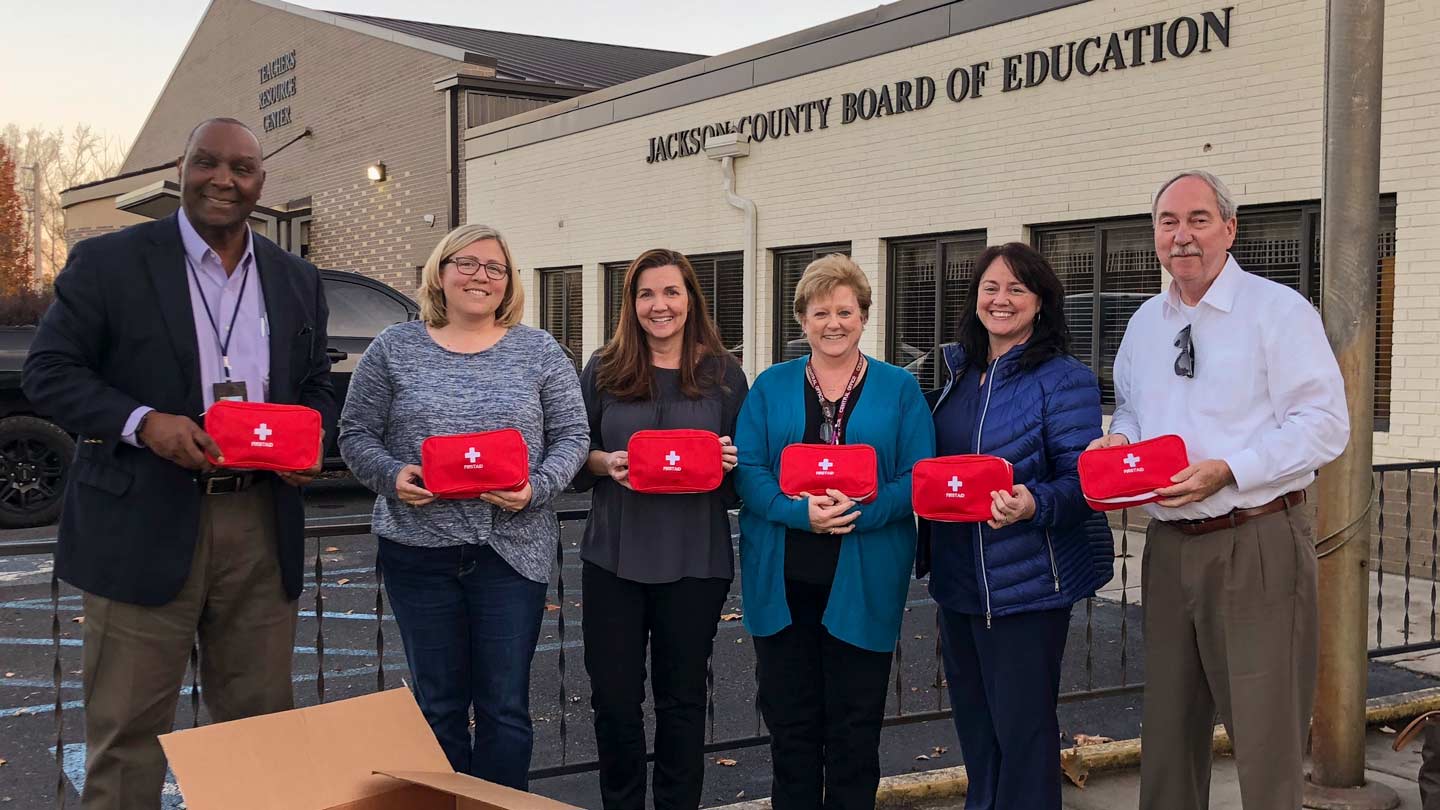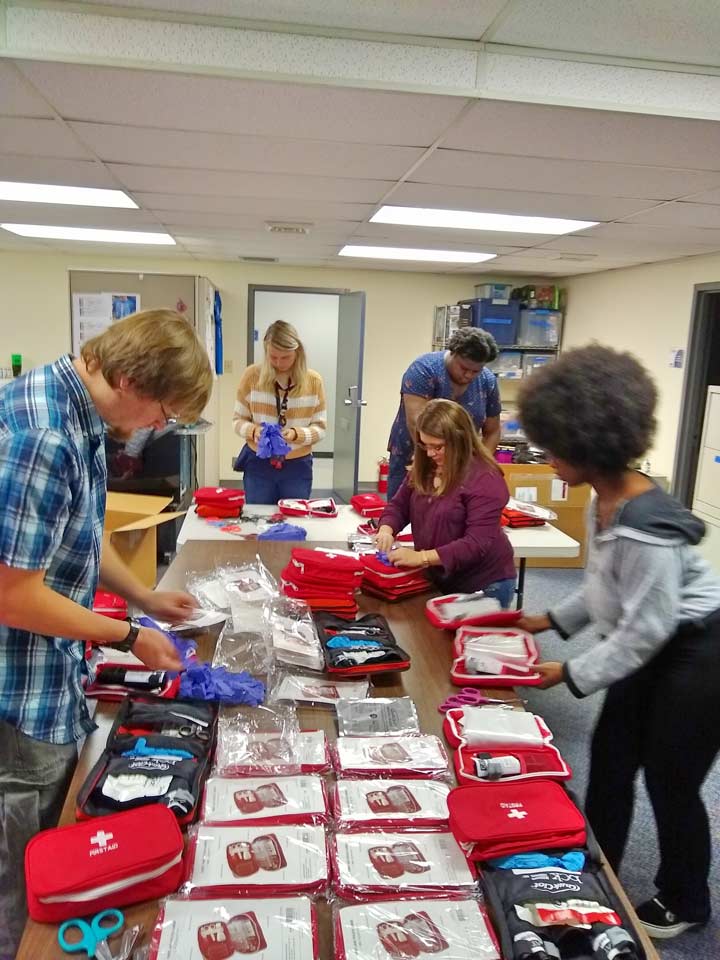
With the Stop Bleed Kits in front of the Jackson County Board of Education building are, from left, Dr. Gary Speers from UAH, Ishella Fogle from UAH, Dr. Kimberly Budisalich from UAH, Pam Vernon of the Jackson County School Board, Dr. Lori Lioce from UAH and Norven Goddard from UAH.
UAH
An all-day mini-mass casualty training event is planned for Jackson County school personnel on Jan. 6 at the Earnest Pruett Center of Technology in Hollywood.
The event is part of a preparedness program being coordinated by The University of Alabama in Huntsville (UAH) Systems Management and Production Center (SMAP Center) and the university’s College of Nursing.
School nurses, teachers, principals and school resource officers from all 17 schools in the Jackson County School System will participate. The event is similar to a full-scale training scenario that was conducted by the UAH College of Nursing in November. Medical personnel, school staff and students will be assigned different roles that represent a real-world situation.
Select students in the Jackson County system will also participate, especially those considering a nursing career.
The training is being supported and funded by the SMAP Center. The College of Nursing will lead the training and provide mass casualty response expertise and a realistic simulated environment. The SMAP Center is working with College of Nursing to provide 3D printed training aids and other technology.
The event is part of an ongoing prevention and preparedness effort by the SMAP Center in Jackson County schools.
"The SMAP Center’s School Safety Initiative began in 2013 as a response to the Sandy Hook massacre," says Gary Maddux, SMAP Center director. "Our initial efforts focused on helping the school system collect and input data into the state-required school safety plan. We ramped up efforts in 2018 following the Parkland shooting with a new focus on prevention technologies and new ideas that address issues before engagement."

UAH SMAP Center employees pack the Stop Bleed Kits at the UAH SMAP Center facility.
UAH
The training event will focus on how and when to use Stop Bleed Kits that are being provided free to Jackson County schools by the SMAP Center.
Designed to be used to quickly stop loss of blood in the event of a shooting or other injury, the kits include a tourniquet, compression bandages, multiple configurations of QuikClot bandages impregnated with clotting powder, trauma shears, gloves and other needed items.
The SMAP Center has provided three Stop Bleed Kits to each school – so that they can be located at various places within a campus in the event of a lock-down situation.
In addition to the Stop Bleed Kit, the SMAP Center is working with the College of Nursing to provide free first aid kits to every Jackson County School System classroom including the EPCOT Center by Jan. 6.
"The most important variable in establishing the work in Jackson County is a shared vision of what we can do, rather than a focus on what can’t be done," Dr. Maddux says. "While the SMAP Center initial effort was focused on prevention of an event, we realized that all events cannot be prevented. We realized that working together, we could address both prevention and response."
The College of Nursing and the SMAP Center have been collaborating for about two years on a number of projects to enhance the development of cost-effective training devices. The two have consulted on multiple SMAP staff and student projects to create, envision and mentor biomedical engineering solutions and enhance and perfect prototypes and communication.
Those projects have included:
- 3D printing of multiple healthcare models and disposable equipment;
- multiple sclerosis lesion mapping and printing with engagement of the human brain through augmented reality;
- injection task trainers and printing realistic tattoo wounds to decrease preparation time for clinical training in the simulation lab;
- development of silicon prosthetic wounds to decrease training costs and increase realism.
"It’s amazing to be able to provide community focused interventions that can truly keep our communities safer through the multi-profession collaboration," says Dr. Lori Lioce, executive director of the College of Nursing Learning and Technology Resource Center. "It’s such a refreshing and energizing collaboration. The synergy gets us out of our silos and truly sparks creative interprofessional solutions."
Also involved in leading the effort are Dr. Marsha Adams, dean of the College of Nursing; Dr. Kim Budisalich, clinical instructor at the College of Nursing; Kevin Dukes, Jackson County superintendent; Jason Davidson, principal at Skyline High School; Pam Vernon, head nurse for the Jackson County School System; and Rocky Harnon, chief deputy at the Jackson County Sheriff’s Office.